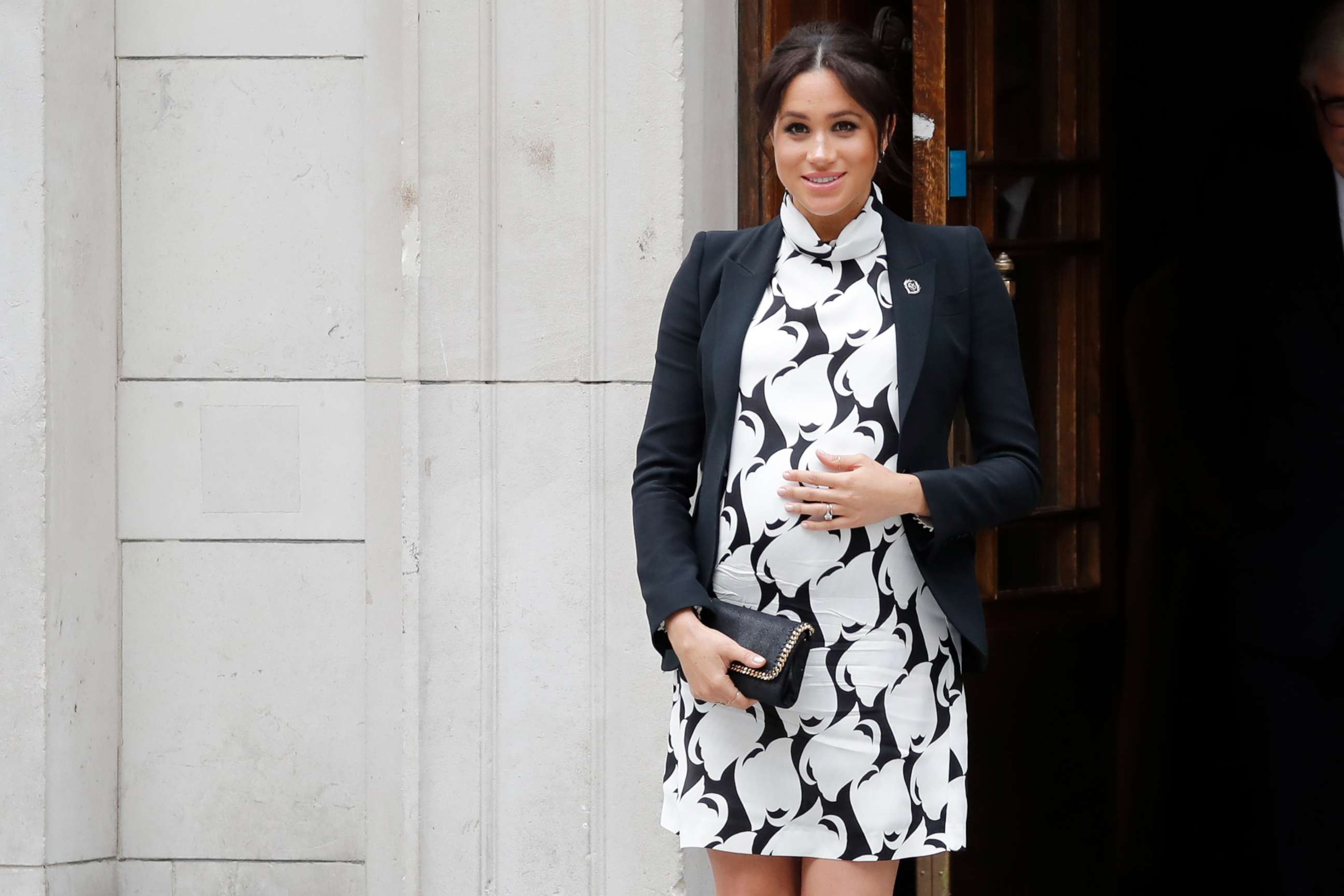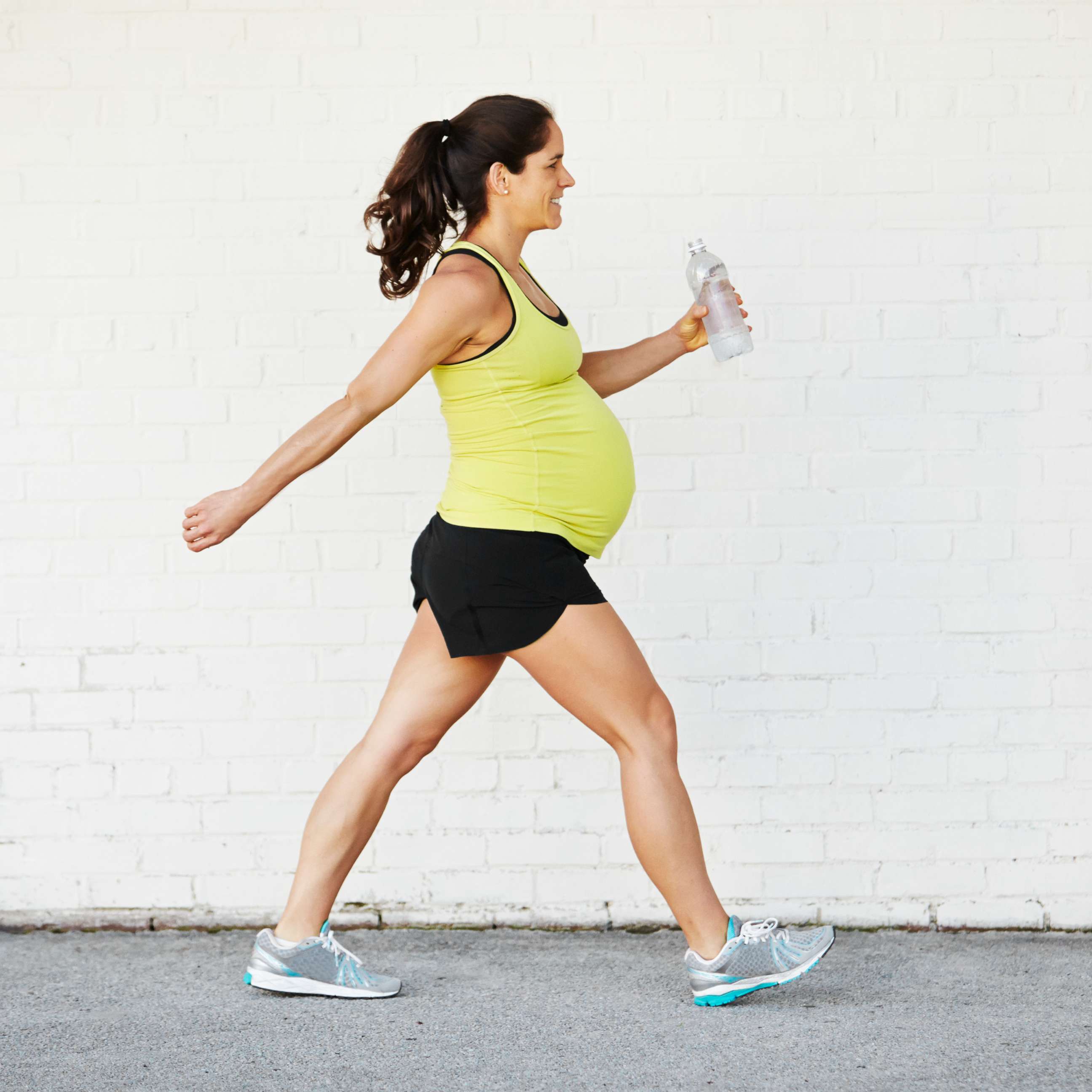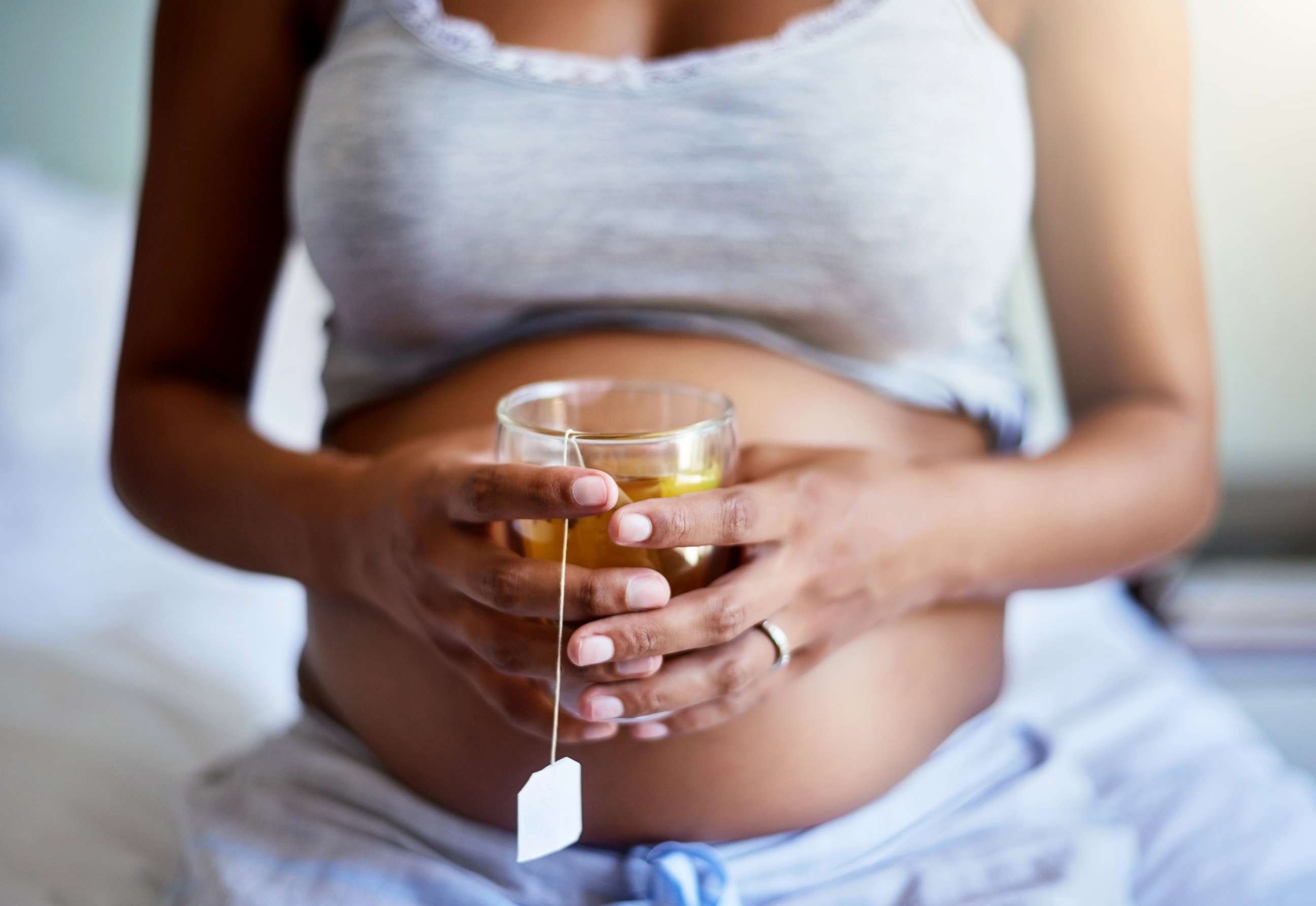Duchess Meghan passes her due date. Do any old wives' tales about inducing labor really work?
From eating spicy foods to bouncing on a ball and using castor oil.
Meghan, the Duchess of Sussex, now officially past her due date with her first child.
The duchess is waiting out her pregnancy at home at Frogmore Cottage with her mom, Doria Ragland, and her husband, Prince Harry.
The great royal baby wait led us to imagine whether Meghan -- like most pregnant women past their due date -- is considering any of the old wives' tales for inducing labor, from eating spicy food to taking long walks or even sipping raspberry tea leaf extract.
"Good Morning America" spoke with three experts, all practicing OBGYNs, to see if there is any real science behind the hype of old wives' tales' claims of inducing labor naturally.

The top advice for pregnant women from all three doctors was to first check with their doctor before trying anything on their own.
(MORE: Royal maternity style: Look back at Meghan, Kate and Diana's pregnancy looks)
The next was for a pregnant woman to know that despite the discomfort and anxiety that late-term pregnancy can bring, the best thing she can do is listen to and trust her own body.
"Your body is made to have labor and to signal labor and it’s just trusting in your body to know that when it’s the right time, when the baby is ready. The body is going to know when to start that process," said Dr. Natalie Bulock, an OBGYN with the Mercy Medical Group in Sacramento, California. "The body really has its own natural signals, some of them even come from the baby, as to when it’s the right time for the baby to come."
Here are Bulock and two more doctors' takes on the most popular old wives' tales for inducing labor naturally.
Spicy foods

The theory: Some people speculate that eating spicy food like garlic or cumin could cause contractions by stimulating the digestive system. Another theory is that spicy food increases production of prostaglandin, a hormone-like substance that helps to induce labor.
The verdict: There is "no evidence whatsoever" that eating spicy foods will induce labor, according to Dr. Sarp Aksel, an OBGYN in New York City.
Eating spicy foods would not necessarily be harmful if an expectant mother wanted to try it, but it could cause stomach irritation or acid reflux and heartburn, all three doctors advised.
Castor oil
The theory: Castor oil is said to act as a stimulant to the bowels, which irritates the uterus and could cause contractions.
The verdict: "We don’t have any evidence that it’s going to cause labor," said Bulock.
Castor oil is used for pregnant women when they get constipated so it could potentially cause some contractions, but not labor, she noted. Bulock recommends against using castor oil because pregnant women don't know what other things the oil they're using might have been processed with.
Aksel said castor oil also raises concerns of dehydration and uterine tachysystole, during which the uterus is contracting frequently and the baby’s ability to get oxygenated blood could be in jeopardy.
Nipple stimulation and sex
The theory: Sex releases prostaglandins, while nipple stimulation is said to trigger the release of oxytocin, a hormone that spurs uterine contractions, in part because it mimics breastfeeding.
The verdict: Neither have been proven in research to induce labor, according to Dr. Abbe Wain, assistant professor of obstetrics and gynecology at Mt. Sinai School of Medicine and a practicing OBGYN in New York City.
"Sex definitely can spur prostaglandin in the sperm and can cause your uterus to contact, but it doesn’t induce labor," she said. "It definitely will make your uterus a little crampy."
Nipple stimulation can cause uterine contractions from the release of oxytocin, but not induce labor, according to Wain.
(MORE: Duchess Meghan wears high heels far into pregnancy. Dangerous or more power to her?)
"It might make you uncomfortable [with contractions] but that doesn’t mean that that’s going to cause labor," she said.
Aksel points out that nipple stimulation also brings a risk factor of uterine tachysystole and, thus, restrict the baby’s ability to get oxygenated blood.
Walking

The theory: Some people believe that walking can move the baby onto the cervix and in the right position for labor. It could also help with the release of oxytocin because of the pressure of the baby's head on the cervix, the theory goes.
The verdict: While walking, and all exercise, are great during pregnancy to help result in a natural labor, there is no evidence that walking can induce labor.
"Exercising and maintaining a healthy weight and diet definitely can cause your labor to be more normal and more natural, but it won’t necessarily induce labor," said Bulock.
Pregnant women need to pay special attention to staying well-hydrated during any type of movement, all three doctors said.
Acupuncture
The theory: Acupuncture and acupressure are believed to release oxytocin, a natural stimulant.
The verdict: There is some emerging evidence that supports acupuncture for labor induction, but the doctors advise against it for most pregnant women.
"It can be helpful [during pregnancy] for women who have low back pain or other medical issues, but they definitely need to talk to their doctor before they do acupuncture," Bulock said. "Because for some women it might not be a good idea."
Bouncing, in a car or on a ball
The theory: A gentle bouncing motion is speculated by some to help move the baby toward the birthing canal.
The verdict: Aksel calls this method "problematic."
"There's no evidence to support it and if there is even any association with it, it’s likely a harmful method of induction," Askel added. "The uterus is very elastic but the placenta, which the baby relies on for oxygen, is not."
"My concern is with the motion the placenta would separate earlier than appropriate and put the baby at risk," he added.
Raspberry leaf tea

The theory: The herbal remedy is thought to tone the muscles of the uterus.
The verdict: "We don’t have any studies that show that it starts labor," said Bulock.
While raspberry leaf tea is filled with nutrients and vitamins and probably not harmful to pregnant women, Bulock said, she advises against supplements that claim to induce labor.
"I really wouldn’t take any supplements by pill or by mouth that are claiming to induce labor because, really, you could expose yourself to something in there that could potentially be harmful," she said. "The biggest issue is, with a lot of the supplements, they’re not really regulated."







